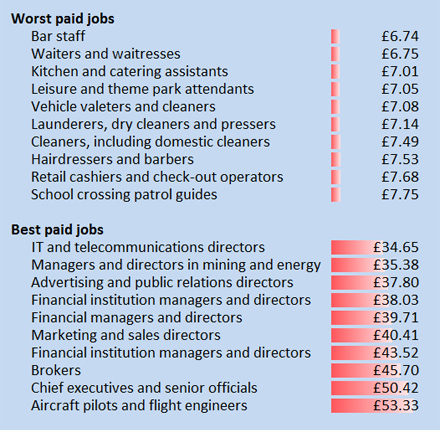The Effort Theory of Value
The Effort Theory of Value is based on the abstract valuation assigned by the mind to real things.
This valuation is based on one’s feelings of need or desire for that thing. The more you want something the more you will work, get stressed, and exert for it.
The real price of everything.. is the toil and trouble of acquiring it ourselves. To save us from toil and trouble, we exchange goods or money [that other people want to aqcuire] for those other people to acquire it for us.
Adam Smith
Wealth of Nations, Book 1, Chapter 5
This valuation manifests as the real price, which is different from the market price.
- The real price is the value assigned by the maker, with reference mostly on himself
- The market price is the value assigned by the seller, with reference to the market or other people
A Ferrari Example: Nominal Versus Real Versus Market Price
We might desire a Ferrari because of its beauty, speed, and comfort. This gives it a very high nominal value according to the 1st Law of Value.
Its high-tech engineering and difficult-to-acquire materials means that it will take a lot of effort to produce ourselves, making it commmand a high real value according to the 2nd Law of Value.
And so we intuitively know that its seller would want something also of high value in exchange for it.

Assuming a Ferrari is $300,000, then it can be exchanged for a $300,000 house in the suburbs or a $300,000 condo unit in the heart of the city.
- If the Ferrari were sold by the Ferrari company directly just as the house were sold by its builder-company, then the $300,000 would be both the real price
- If the Ferarri were sold by a trader just as the house were sold by a broker, then the $300,000 is the market price, not the real price.
Therefore the real price is the price from the maker or producer who actually makes the thing. It represents his toil and trouble to make it.
The trouble of trading and storing it is a different thing. This will be explained as the Market Price in the chapter on the 4th Law of Value
Toil and Trouble are not Objective
Assume that instead of manufacturing or construction, the economic activity is the service of playing guitar music.
- Person A (aka ‘Guitar Hater’) has no interest in playing the guitar. He might ’toil’ a lot if forced to learn the guitar.
- Person B (aka ‘Guitar Lover’) naturally loves guitars.
Therefore:
- the ‘high toil’ or suffering of Guitar Hater in playing the guitar will be consistently high always and anywhere he is.
- the low toil or suffering of Guitar Lover in playing the guitar is consistently low always and anywhere he is.
Adam Smith explains:
At all times and places:
- an expensive thing is something that is difficult or costs much labour to acquire
- a cheap thing is something which is easy or costs very little labour to acquire
Therefore, labour alone, never varying in its own value, is the ultimate and real standard for the valuation of all commodities. It is their real price. Money is their nominal price only.
Adam Smith
Cartesian Relationality (Relativity) and the Constant of Personal Interest
Thus, the ‘cost’ or ‘price’ of guitar playing will be consistently:
- ’expensive’ to Guitar Hater
- ‘cheap’ to Guitar Lover
If their society naturally values guitar music, then:
- Guitar Hater will be ‘poor’
- Guitar Lover will be ‘wealthy’
Guitar Lover can ‘arbitrage’ his high quality but cheaply-earned guitar skill by selling it to society at a price that is high to them.

So the core idea in Smith’s theory is the feeling of psychological toil and trouble instead of physical labour. This was known as the ‘Labour theory of value’.
We replace it with ‘Effort Theory of Value’ since the word ’effort’ best combines both psychological and emotional toil-and-trouble with physical work.
‘Work Theory of Value’ was also a good candidate. However, ‘work’ tends to mean more of the effect rather than the cause.
A new way of thinking
This way of thinking about another person’s love for guitar-playing (cause) instead of thinking about his actual guitar music (effect) is not common.
When you buy bread at the grocery, you often check the label and think about its price and nutrients. You never think about the baker who baked that bread and who was the cause of the existence of the bread. His name, skills, looks, personality, doesn’t enter your mind. Likewise, we see objects everday and never think about the persons or Creator that made their existence possible.
Eastern philosophy solves this by using a mantra constantly which forces the mind to always think of the causal principles behind every perception. Thanks to this technique, the mind is trained to look at the principles behind every perception, whether it be in economics, politics, healthcare, astrophysics, etc.
Shallow minds will think that money is the cause of economic activity because that is what their perceptions readily presents to them. From this, they will create utility theories, and then equilibrium and profit maximization theories, not knowing that such ideas naturally create crises after some time because they are based on effect instead of cause.
Personal Interest as the Invisible Hand
But effort alone will not lead to value-creation.
- No matter how hard a guitar player creates furniture, he can never make it as good as how a carpenter would make it.
- No matter how hard a carpenter plays a guitar, he can never be as good as a real guitar player in concerts

Thus to succeed, a person must be interested in what he is applying his effort to – he has to be deeply interested in whatever task he is doing.
This is where his ‘personal-interest’* comes in. Whatever one is interested in is a natural part of the invisible hand of his dharma or tao.
We call this dharma as the gravitational signature or inherent spin, which is a key concept in Superphysics.
Superphysics Note
A person interested in guitars will naturally create higher quality* guitar music than someone who is not interested in guitars.
Superphysics Note
Society would therefore have more value, quality, and abundance if its carpenters focused on making furniture, and its musicians focused on creating music instead of the other way around.
This value and abundance are then spread through exchange, such as through money, barter, credit, or donations, onto places where there is lack*:
The Way (or Tao) of Heaven can be compared to the bending a bow. The part of the bow which was high is lowered. The part which was low is raised up. Likewise, Heaven reduces where there is superabundance, and supplements where there is deficiency.. Who can take his own superabundance and use it to serve all under heaven? Only he who is in possession of the Tao!
Lao Tzu
Tao Te Ching, Chapter 77
Superphysics Note
How it Works
The Effort Theory of Value can be derived by asking: What is stressful to others that is not stressful to you?
By focusing on that task, then you are able to produce something that relieves the stress of others at less stress for yourself.
Those others might then want to give you something for it. They will give you something that is stressful to you to make, but not stressful for them.
For example, a farmer might find it difficult to make a website to advertise his potato harvest for sale. So he asks a web developer or programmer to make his website or social media page to let people know of his harvest.
The programmer finds it difficult to grow potatoes so he gets the potatoes of the farmer as part of the payment.
Matching Interest and Action
The matching of interest and action or occupation is the key to wealth. This is why Socrates put it as the core requirement of his ideal city-state and even for life itself:
A person works better when he has only one occupation instead of many. A work is spoilt when not done at the right time. Business does not wait for the businessman to be at leisure. Instead, the businessman must follow up what he is doing and make his business his first object. All things are produced more plentifully, easily, and with a better quality when one man does one thing which is natural to him at the right time, and leaves other things.
Socrates
The Simple Republic, Book 2, Chapter 2
Here, my dear Glaucon, is the supreme peril of our human state. Therefore, the utmost care should be taken. Let each of us leave every other kind of knowledge and seek and follow one thing only. This will help us learn and discern between good and evil. In this way, we can always and everywhere choose the better life.
Socrates
The Simple Republic, Book 10, Chapter 3
This is the same reasoning behind the Hindu varna system wherein a family of farmers trains its some of its children as farmers, and a family of doctors trains some of its children as doctors. Unfortunately, this system degenerated into a rigid caste system that people got trapped into. Instead of the occupations being naturally dynamic, it became static.
To prevent this, one of the features of our proposed system is for the classification of careers to be done by artificial intellgence based on personality instead of heredity, so that society can have economic balance and higher quality of goods and services.

With this, we can safely translate Smith’s 18th-century words into modern English without corrupting its deeper meaning and intention:
Original
A measure of quantity, such as the natural foot, continually varies. It can never be an accurate measure of other things. Likewise a commodity which continually varyies in value can never measure the value of other commodities.
Equal quantities of labour, at all times and places, is of equal value to the labourer.. The labor which he pays is always the same, whatever the goods he receives for it. At all times and places, an expensive thing is difficult to come at and costs much labour.
Labour alone, therefore, never varying in its own value, is the ultimate and real standard or price. Money is the nominal price only.
Adam Smith
Translated with ’toil and trouble’
A commodity that always varies in value can never be an accurate measure of the value of other commodities.
But a person’s toil and trouble will always be the same to himself always and anywhere he is.
Always and everywhere, a thing is expensive if it is difficult or costs much toil and trouble to acquire.
Toil and trouble never varies in its own value. Therefore, it alone is the ultimate and real price. Money is the nominal price only.
Adam Smith

The Effort Theory of Value is seen in lowly-paid and highly-paid jobs. The former generally requires less effort than the latter, when taking into account the physical, mental, and emotional toil and trouble involved.
This post series will explain how the Effort Theory of Value can replace the Utility and Marginal Pricing paradigms of Economics to create a new economy called a “pantrynomy” that has zero inflation while having superabundance.